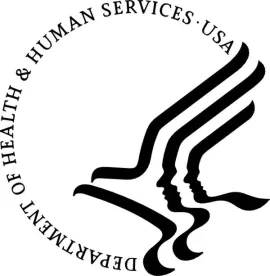Highlights
The number of convictions for fraud and patient abuse and neglect in FY 2022 increased, while civil settlements and judgments dipped slightly
Total recoveries by MFCUs declined in 2022, likely due to the decrease in large federal and multistate investigations, which typically result in larger recoveries
Personal care attendants continued to have highest number of fraud convictions; pharmaceutical manufacturers accounted for more civil settlements and judgments than other provider types
The Department of Health and Human Services’ Office of Inspector General (OIG) reported that in the fiscal year ending Sept. 30, 2022, the 53 Medicaid Fraud Control Units (MFCUs) recovered more than $1.1 billion in criminal and civil recoveries, amounting to $3.08 for every dollar spent. This is the fourth year in a row that recoveries topped $1 billion.
MFCUs, which are funded jointly by the federal and state governments, investigate and prosecute provider fraud and patient abuse or neglect involving the Medicaid program. MFCUs operate in all 50 states, plus the District of Columbia, Puerto Rico and the U.S. Virgin Islands. The OIG report was issued March 10.
Investigations typically begin as referrals from external sources or internally from data mining.
Criminal Convictions on the Rise
The MFCUs reported 1,327 convictions in FY 2022, an increase over the previous two years after encountering pandemic-related operational challenges in 2020 and 2021. The vast majority of convictions involved incidents of fraud (946), while 381 were for patient abuse and neglect. Interestingly, 171 of the convictions were related to drug diversion cases, an increase over the previous two years. Personal care service attendants had the highest number of fraud convictions, accounting for 44 percent, followed by nurses/nurse practitioners/physician assistants and personal care services agencies.
Criminal convictions can lead to exclusion from the federally funded healthcare programs, broadening the impact of those convictions. Of the 2,332 exclusions imposed by OIG in FY 2022, at least 44 percent stemmed from MFCU cases.
The criminal recoveries constituted $416 million in 2022, down from $857 million in 2021 but still higher than in the years 2018 to 2020. According to the report, the 2021 spike was largely the result of two cases prosecuted in Virginia and Texas – amounting to a combined $714 million in criminal recoveries, 83 percent of the total reported criminal recoveries in FY 2021.
Civil Actions Smaller, Recoveries Slightly Lower
There were 553 civil settlements and judgments resulting from MFCUs’ work in FY 2022, down from 786 in 2020 and 716 in 2021. Pharmaceutical manufacturers accounted for 95 civil settlements and judgments, more than any other provider type. Medical device manufacturers and retail and institutional wholesale pharmacies had the next highest numbers of settlements and judgments, with 54 each.
There was a total of $641 million in civil recoveries in 2022, a drop from $826 million in 2021 and $855 million in 2020. However, this dip may be attributable to a shift in the scope of the investigations from larger global cases involving joint investigations by the federal government and groups of states (coordinated through the National Association of Medicaid Fraud Control Units) to non-global cases brought by individual MFCUs. Global matters typically result in larger recoveries. In FY 2022, almost two-thirds (62 percent) of the civil recoveries stemmed from non-global cases. In contrast, in 2021 more than half (54 percent) of the cases were global, and in 2020, 74 percent of civil recoveries derived from global cases.
Key Takeaways
With a return on investment of 3-to-1, MFCU enforcement activity will likely remain strong. Indeed, in February 2023 alone, the government announced 15 MFCU enforcement actions, including a $7.1 million settlement with a former New York nursing home, a $2.5 million settlement with a Massachusetts home care company and the convictions of two individuals in Texas who must also pay $1.1 million in restitution.
It is also reasonable to expect that MFCUs will continue to rely more on data mining to identify instances of potential fraud and patient abuse and neglect. As recently as spring 2022, Kansas’ MFCU was approved to use this technology, bringing to 22 the number of states that are now equipped to use data analytics to root out possible fraud and abuse. This may result in more investigations overall and the unearthing of larger patterns of suspicious activity involving multiple providers.
In the end, MFCUs’ continued focus on fraud and abuse issues – especially the recent increase in criminal convictions – means healthcare companies, providers, plans and the like must ensure robust compliance programs to identify and remedy fraud and abuse concerns.





 />i
/>i

